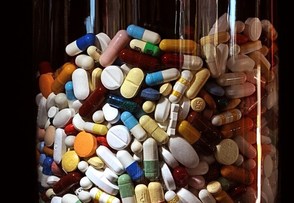 When patients come to a hospital outpatient clinic it is common for them to be asked about the medication they are taking. As a physician, medicines are your main weapon against disease and even as an interventional cardiologist I spend most of my time intervening with my pen rather than with catheters. It is essential for the doctor to know which medication the patient is taking and in what dose. Some patient with angina, high blood pressure or diabetes are prescribed over 10 different medications, but how many of them are being taken? Compliance is understood to mean acting in accordance with advice of the prescriber. The word is linked with an old-fashioned paternalistic attitudes towards the patient by the prescriber and so instead the idea of concordance, implying that prescriber and patient were in general agreement about the drug regimen is preferred. Some people prefer the term adherence which implies a steady observance or maintenance. So in the clinic how do we really know whether our patients are adhering to their medications as prescribed? A study just published in Heart looked at this question in 208 patients referred their secondary care hypertension clinic. Using an HPLC assay to detect 40 of the most commonly prescribed antihypertensive medications they ran samples of the patient's urine to see if the drugs on prescription chart were present in the urine. Shockingly in 25% of patients only some of the blood pressure medications were found and in 10% none were found. This follows on from a study in Germany that looked at 108 patients with resistant hypertension. Of these 15 patients had secondary causes of hypertension and 17 achieved blood pressure control by the addition another drug. In the remaining 76 patients, using the same type of HPLC analysis of the urine, 53% of patients were non-adherent to the prescribed medication and 30% were not taking any blood pressure medication at all. Patients with resistant hypertension are often sent for expensive investigations such as MRIs, blood and urine tests looking for secondary hypertension often with normal results. Apart from higher BP levels and elevated heart rate, adherent and non-adherent patients are indistinguishable which supports the idea that a doctors impression, patient's interviews or pill counts are not reliable markers of adherence. With the results from these studies in mind a formal check of adherence to treatment using a urine analysis would be helpful. Of course this can't give the whole picture since it is also recognised that patients adherence to treatments increases around the time of clinic appointments. In the future it is likely that we will be able to monitor medication adherence. New smart pills containing a silicon chip the size of a grain of sand are already a reality. Composed of trace amounts of magnesium and copper, when swallowed, they react with stomach acid generating a tiny voltage which can be detected by a special skin patch and relayed to a smartphone. These can be built into a medication and would allow doctors to know if medication has been taken and also act as a remind to the patient who might have forgotten to take their tablets. With some medicines such as the new oral anticoagulants addition of this technology could be very cost effective as improved adherence is very likely to improve patient outcomes.
0 Comments
Your comment will be posted after it is approved.
Leave a Reply. |
Dr Richard BogleThe opinions expressed in this blog are strictly those of the author and should not be construed as the opinion or policy of my employers nor recommendations for your care or anyone else's. Always seek professional guidance instead. Archives
August 2023
Categories
All
|
 RSS Feed
RSS Feed

